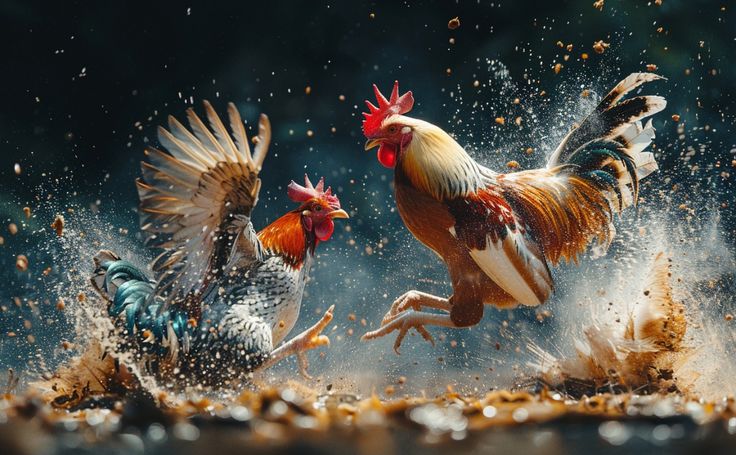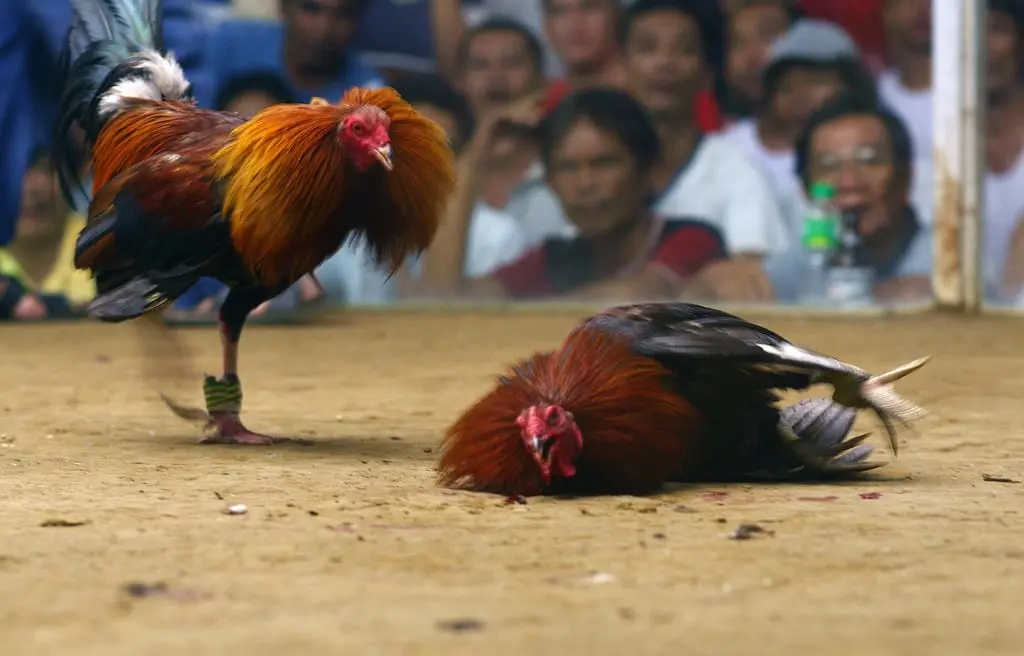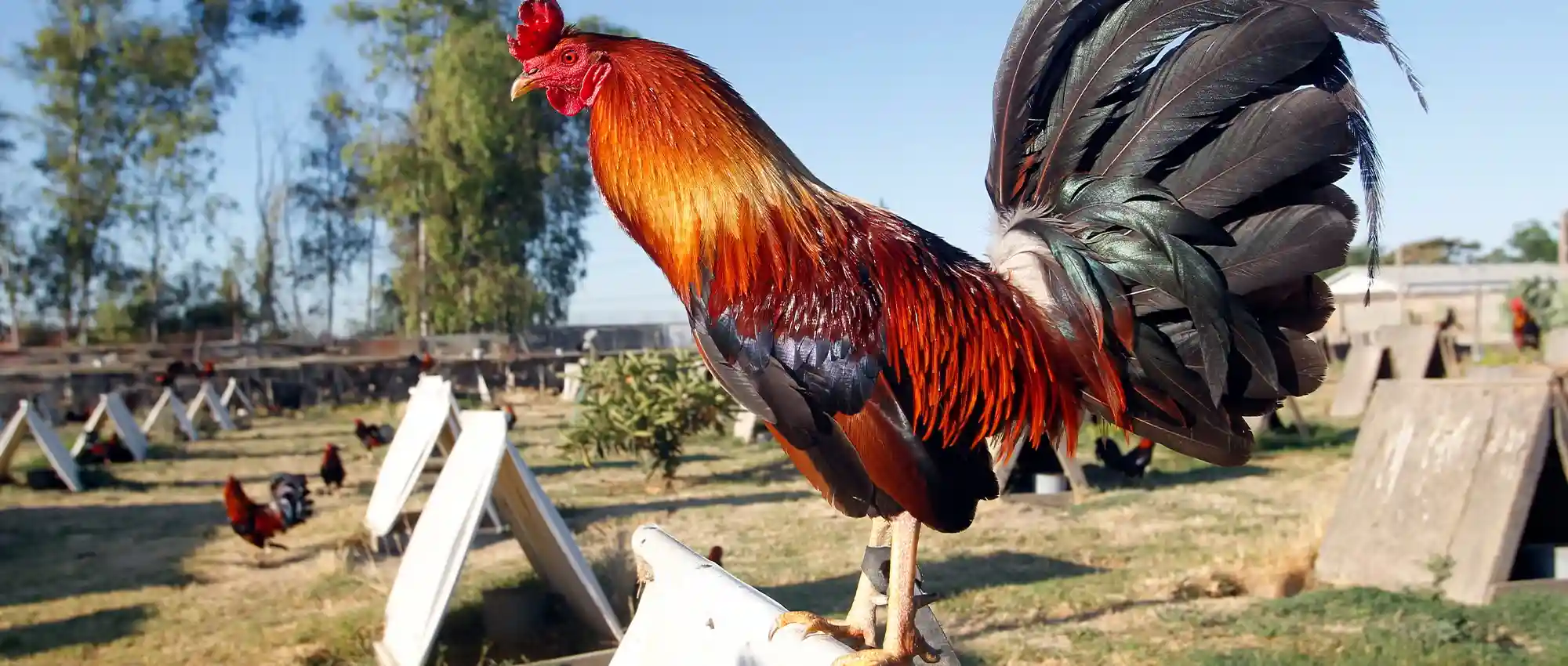In the world of cockfighting, the way to take care of Cockfighting plays a key role in ensuring the health and fighting ability of Cockfighting. This article will help you understand why new players are interested in taking care of Cockfighting, share effective care methods from experts at SBet and the problems that bettors often encounter.
Why do beginners care about how to take care of Cockfighting?
Cockfighting is not only a hobby but also a passion for many people. Especially for those who are new to this field, proper care of Cockfighting plays a decisive role in the development and fighting ability of Cockfighting. So why are newbies especially interested in how to care for Cockfighting?

Help chickens grow healthy from the start.
Cockfighting needs to be carefully cared for from an early age if they want to become strong fighters. If not properly raised, they can grow slowly, become weak, and become susceptible to disease. New players need to have a solid understanding of diet, vaccination, and training to ensure that their cocks develop fully.
- Proper nutrition: Provide enough protein, vitamins and minerals for chickens to develop strong muscles and bones.
- Disease prevention: Vaccinate fully, clean barns to prevent disease.
- Early training: Light exercises help chickens get used to the environment, improve endurance and reflexes.
Increase your chances of winning in battle.
The goal of raising Cockfighting is to make them compete and win. If the cocks are not properly cared for, they can become weak, inflexible, or easily injured during a fight. Therefore, beginners will be very interested in care methods to help the cocks achieve the best physical condition before going into battle.
Factors that determine the strength of Cockfighting include:
- Good physical strength: Training regimens such as jogging, kicking, and breathing help chickens have outstanding endurance.
- Thick skin, hard legs: A proper massage regimen with turmeric wine and sun exposure helps chicken skin become red, thick and less vulnerable to damage.
- Agility: Apply reflex exercises to help the chicken be more flexible during combat.
Avoid making mistakes when raising Cockfighting.
Many new players, when playing Cockfighting, often encounter some basic mistakes, that directly affect the health and fighting ability of the chicken. Learning how to take care of them properly from the beginning will help them avoid common mistakes such as:

- Feeding incorrectly: Gamecocks need a different diet than regular chickens. If fed too much starch or fat, the chickens can become sluggish and heavy.
- Not controlling diseases: If you do not know how to prevent diseases, chickens can get diseases such as asthma, diarrhea, pneumonia, affecting their physical strength during competition.
- Incorrect training techniques: Training too early or too hard can injure the chicken and make it unable to fight.
Equipping yourself with knowledge of how to care for Cockfighting helps new breeders avoid unfortunate mistakes and have the right direction to develop Cockfighting.
How to take care of Cockfighting by experts at SBet
Experienced cockfighters at SBet have shared that, for Cockfighting to achieve the best physical condition, it requires not only innate qualities but also a scientific care regimen. Below are important factors that help Cockfighting develop comprehensively.
Proper nutrition
Nutrition is a key factor in determining the development of Cockfighting. A balanced diet will help the cocks have enough endurance, firm muscles and be more agile when competing.
- Main food: Combination of rice, paddy and seeds to provide an abundant energy source. Rice should be soaked before feeding to make it easier for chickens to digest.
- Food supplement:
- Green vegetables: Green cabbage and water spinach help add fiber and aid digestion.
- Fresh bait: Worms, crickets, and insects help increase the amount of protein needed for muscle growth.
- Vitamin supplements: Garlic, ginger, turmeric help increase resistance, reduce the risk of disease.
Scientific training mode
Cockfighting requires a proper training regimen to have good stamina, fast attack speed, and good reflexes.
- Physical exercise:
- Running cage: Put chickens in a small cage so they can move continuously, increasing their endurance and flexibility.
- Dew pants: Let the chickens exercise lightly in the early morning to help increase resistance and adapt to the environment.
- Technical exercises:
- Practice with punches and breaths: Let the rooster practice with the other rooster to practice the skills of striking and dodging blows.
- Massage with turmeric wine: Helps thicken chicken skin, reduces injuries during matches.
Regular health care
A healthy Cockfighting not only depends on nutrition and exercise but also needs regular health monitoring.
- Disease prevention:
- Fully vaccinated against common diseases such as pasteurellosis, Newcastle, coccidia to prevent the spread of disease.
- Use supplements such as digestive enzymes and electrolytes to help increase resistance.
- Daily health check:
- Observe the chicken’s behavior: If the chicken shows signs of ruffled feathers, loss of appetite, or lethargy, it needs to be checked immediately.
- Check legs, beak, eyes for early signs of injury.
Problems bettors encounter in raising Cockfighting
Taking care of cockfighting not only requires patience but also in-depth knowledge of nutrition, training, health, and living environment. However, many bettors, especially new ones, often make some mistakes that prevent the chickens from developing optimally. Below are common problems that bettors often encounter when taking care of Cockfighting.

Lack of specialized knowledge
Many new cockfighting players often have great passion but lack practical experience. This leads to incorrect application of care regimen, directly affecting the health and performance of the chicken. Some bettors only feed the chickens with rice and paddy without adding green vegetables, fresh bait or vitamins, causing the chickens to be malnourished.
In addition, many people do not adjust their diet according to each stage of development, causing the chicken to be stunted or obese. In addition, not exercising the chicken properly will cause the chicken to lack physical strength or be prone to injury. Some bettors do not know how to massage and train the chicken properly to help increase its endurance.
Subjective in disease prevention
A serious mistake that many bettors make is to underestimate disease prevention for chickens. When chickens get sick, treatment is not only expensive but also greatly affects the long-term health of the fighting chicken. Some people think that healthy chickens do not need vaccination, but in fact, diseases such as pasteurellosis or Newcastle can break out at any time.
In addition, not supplementing the necessary vitamins and minerals to increase resistance is also a mistake. Many bettors are subjective, do not observe early signs of disease, leading to late detection and more difficult treatment.
Poor environmental management
The coop is an important factor in helping chickens grow healthily, but many bettors do not pay attention to building and cleaning the coop. If not cleaned regularly, bacteria and parasites will grow, causing diseases for the chickens. Humidity in the coop that is too high or too low also affects the health of the Cockfighting. In addition, cockfighting needs space to move; if they are locked in a narrow coop for too long, they will lose strength and become too lazy to move.
Conclusion
Taking care of Cockfighting is an art that requires perseverance, meticulousness, and deep understanding. For beginners, mastering the care techniques will help Cockfighting develop comprehensively and achieve high results at the SBet playground. Always learn and apply effective care methods to become a true cockfighter.

























